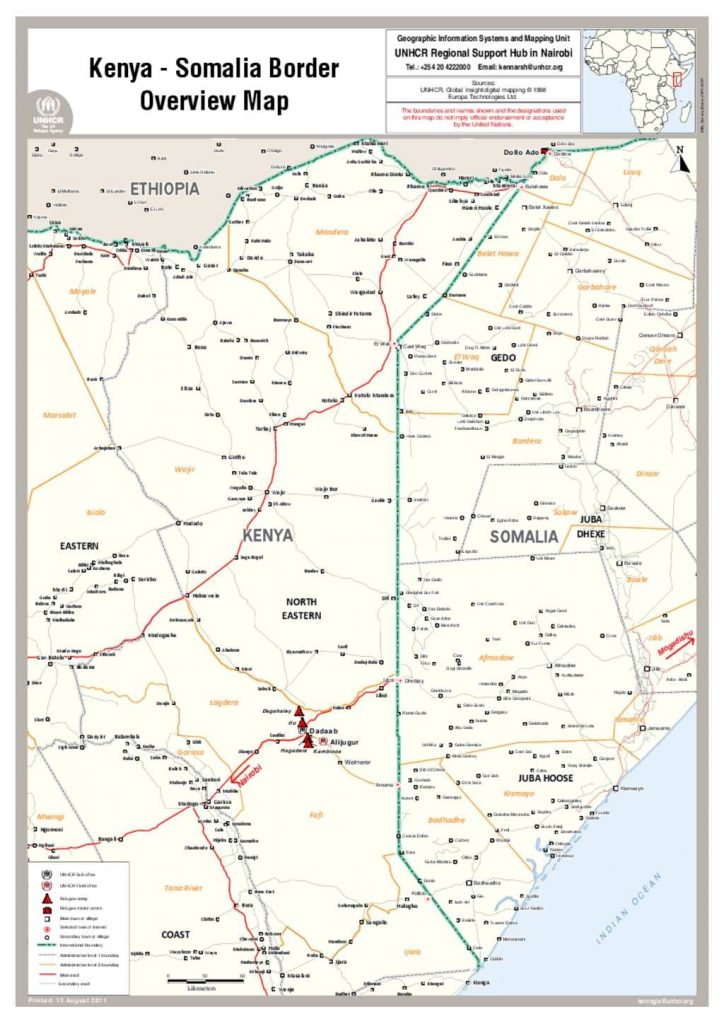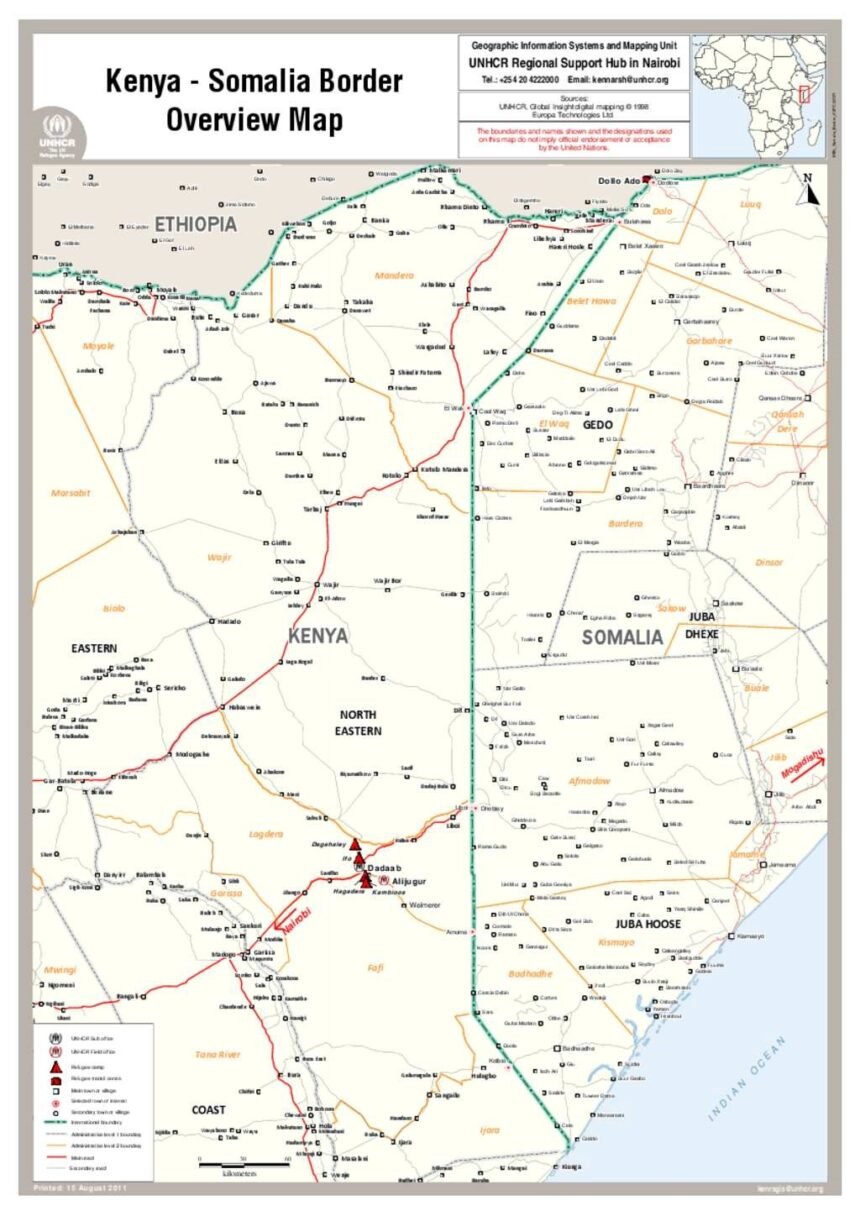By Guled Osman
Italy unified in 1860 to become a leading Republic within Europe. Britain, at that time maintaining a vast global empire, had been the driving force behind the rules based international system built upon the all-important framework of international law. The two countries have a long history of peaceful integration based upon mutual respect and treaty obligation. Cooperation between Italy and Britain in Africa, as well as in other areas, has evidently been advantageous to both nations. Today, in the 21st century, both countries continue to cooperate to great effect as equal members of numerous multilateral organizations, and other important global groupings (for example, when responding effectively to climate change, COVID-19, and advancements in space research).

Somalia regained independence in 1960, a hundred years after Italian unification, and Kenya was formed and gained independence in 1963. Both East African nations had joined the international rules-based order we see around us today, and only within a few short years of each other. In doing so, both nations have clearly learned that rules come with responsibilities. Respect for international obligations is all that prevents people, throughout Africa, from losing the tremendous fruits gained after independence.
Respect for the norms of international law is the only sure way of maintaining equality between disparate nation states as well as the human rights of ethnic minorities throughout the continent. Peace and prosperity are seriously jeopardized when nation states go rogue and begin to follow policies that undermine well established treaty obligations.
Peace and mutual cooperation between Somalia and Kenya is based on the Arusha Memorandum of Understanding, signed by Prime Minister Egal and President Jommo Kenyatta. Today, the expansionist policies and actions of Kenya in Jubaland jeopardize this important MoU between the two countries, which could result in Somalia taking concrete steps to recover the lost territories of the NFD.
In 1925, the British Colonial Office in London made a decision to turn, the Somali region a.k.a. Northern Frontier District (NFD) into a buffer zone to deter the encroachment and influx of people from the Horn into its East Africa Colony, currently known as Kenya. The people in question were Muslim Somalis as well as Christians from Ethiopia. The implication, of this British decision to turn the NFD into a buffer zone, was that the hostile territories beyond the buffer zone had nothing whatsoever to do with the legal administration of its East Africa Colony, currently known as Kenya. An interesting historical fact to consider is that Kenya the country is named after Mount Kenya, located 150 kilometres to the North of Nairobi, and named so well after the British Colonialists had first arrived in the East African Region. Another interesting fact is that a colonial enterprise called the Imperial British East Africa Company had been incorporated in London in 1888. The company suffered bankruptcy and was defunct within a decade. A significant part of the IBEACO holdings would become the East Africa Protectorate in 1895. As already noted, Kenya Colony had been named after a mountain by the British Colonialists.
When Kenya gained independence in 1963, the NFD was kept and had remained a buffer zone for the newly created country, called Kenya, rather than returning to a place of sanctuary with brothers and sisters in Somalia. A place viewed with considerable suspicion by Nairobi, the NFD was little talked about for decades despite multiple episodes of civil unrest. During this period, Kenya routinely used arbitrary detention of community leaders as a means of trying to bring the people of the NFD to heel, and to deter any notion of Somali solidarity or the suggestion of potential unity with “foreigners”. In 1984, the Wagala massacre, in which more than 60 civilian victims had been killed by Kenyan Security Forces in the NFD had taken place. Somalis consider this particular massacre to be an act of state sanctioned genocide. All options remain on the table when an appropriate response to this heinous crime is being considered: including the punishment of those individuals ultimately responsible for ordering the massacre, in addition to seeking the return of the NFD territories to Somalia.
Nothing had changed following independence as far as Kenya was concerned: the territories beyond the NFD were nothing to do with the internal affairs of Kenya and this was explicit ratification of the British Colonial Office decision of 1925.
There were no headaches in the Kenyan Parliament, caused by Jubaland in 1966, as is claimed by John Kamau in his article entitled, How Kenya lost Jubaland in [a] deal between Britain and Italy; as evidenced by the decades long Kenyan policy of maintaining a crude and destructive buffer zone between Kenyan territory and foreign lands.
In his article, Kamau states, “Some 54 years later, the same Jubaland headache is confronting President Uhuru Kenyatta”. This is clearly demonstrating the depths to which Kenya is willing to stoop in order to achieve foreign policy objectives in Jubaland, a constituent member state of the Federal Republic of Somalia. By promoting this kind of revisionist history in his article, Kamau makes clear to the reader that Kenya is now unwilling to respect the norms of international law. Pure and simple.
By means of outrageous sophistry, Kamau seeks to suggest to the credulous reader that the problems of today were caused by long dead British statesmen and, therefore, Kenya does not currently interfere in the internal affairs of Somalia. Thus, the severing of diplomatic ties between the neighboring states is easily explained away by Kamau. This is patently absurd, and frankly dangerous. As I write these words, Kenya is busily developing a buffer zone inside Somalia. In a place called Jubaland, whilst flagrantly flouting all norms of international law, and treaty obligations that the Kenyan Parliament had assumed responsibility for in 1963. In doing so, Kenya is now illegally pursuing dangerous policies in Jubaland via proxies.
Why is it important for Kenya to accept responsibility for the treaty obligations assumed by the Kenyan Parliament on independence as they relate to Somalia? Because the preservation minority rights in states, like Kenya, with diverse populations who speak numerous different languages would easily come into question if that country chooses to selectively rewrite history, under the cover of law. Recall, in 1925, that Kenya Colony had slammed the door shut on foreigners by establishing the NFD as a buffer zone, and the way in which this had been based on placing limits on the free movement of specific ethnic populations? Well, this is the key to understand why Kenya needs to resort to subterfuge and brute force today.
Even in his article, John Kamau makes great effort to describe the intricate histories European nations who all respect their treaty obligations. This is simple distraction, as interesting as the long history of European states can be, it tells us nothing about great policy failures occurring in Nairobi today. The one thing all of the European nations mentioned in the Kamau article have in common is that the fate of minority populations, in times of war and peace, often hinges on treaties signed with a view to the furtherance of policies which best promote future cooperation. If the goal of responsible policymakers, as it ought to be in all places, is peaceful cooperation, then all states are duty bound by their treaty obligations at all times.
A key feature of international law is gradualism. The basic idea is that gradual progress is made between states if healthy diplomatic relations are maintained. Naturally, no progress can be made when diplomatic ties are cut. This often leads to tragic consequences when neighboring countries find themselves in such a situation. Having said so, unilateral action, driven by willful subversion and even the rejection of foundational articles of incorporation, distributed and ratified in the Kenyan Parliament, at the expense of a neighboring state is not only irresponsible, it risks the complete dissolution of the modern nation state as we know it in Africa: this justifies Somalia’s recent recall of all embassy staff in Nairobi, and the unfortunate expulsion of the Kenyan mission in Mogadishu. That was bad enough, but it is as nothing to compare with what awaits us in terms of the opportunity costs to future cooperation between the two nations if Kenya continues the policy of playing roughshod over basic international obligations. This is a genuine crisis, because if each country in the world were to make a habit of selectively and selfishly choosing to drop key components of their treaty obligations to other states, what would prevent others from doing likewise by reciprocating?
The reader must now see the folly in the pursuit of such dangerous policies and actions, whatever proclamations are made by the ruling elites of Kenya. This is especially true in Africa, where the phenomenon of the successor state is very much the norm. Imagine, if you will for a moment, what would follow if the leadership of one African state actually responded in kind to the appeal to colonial era damage used to justify interference in the domestic affairs of a neighbor, as is now happening in Jubaland? The neighbor state could, if willing to be just as irresponsible, easily find a relevant treaty obligation to ignore. This would be the wrong policy to follow for any responsible African state, of course, but it serves to illustrate the point.
The challenge now facing Kenya, as I see it, is to publicly acknowledge the fact that a pandora’s box would have been opened should the kind of sophistry and appeal to colonial era damage promoted by the Kamau article referenced becomes the norm in policymaking circles in Nairobi. The test of leadership for the Kenyan President would be the degree to which he is willing to disavow the scandalous appeal to colonial era damage being promoted shamelessly in the media. My advice would be speak to Somalia directly and withdraw your unlawful claims to Somali Coastal Waters and EEZ; say, unequivocally, that Jubaland truly is the keystone of international law: the part of Somalia that carries the burden of expectations when treaty obligations ever come into doubt. Then restore full diplomatic relations with Somalia and do as Italy and Britain do today: cooperate in all areas for the good of humanity.
Guled Osman
Email: g.osman@inbox.ru


Leave a Reply